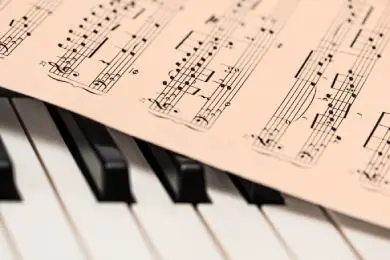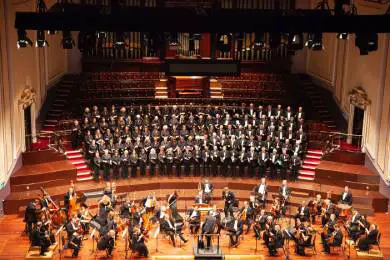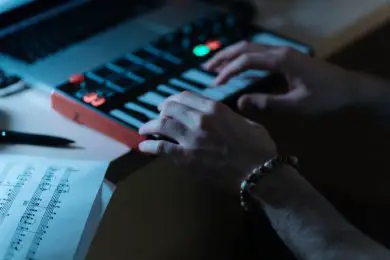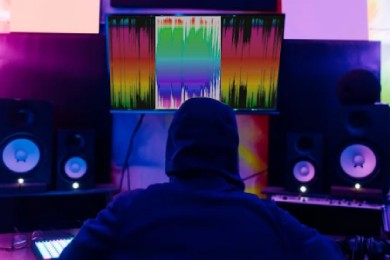Classical music is some of the most beautiful and timeless music in the world. However, many people are unsure of how to use it in their own projects and if you can sample classical music.
Yes, as long as the classical song is under a creative commons license (for commercial use if you’re releasing the track), just be sure to credit the composer. However, some classical music is under the public domain or royalty-free, meaning you can create your own composition of it.
Can you sample classical music? Is there copyright on classical music? Can classical music be used royalty-free? Who owns the rights to classical music? In this article, we will answer all of these questions and more!
Best Sites To Get Royalty-Free/Public Domain Music
Looking for websites or new places to get royalty-free or public domain samples? Here are 8 sites that you can use!

Are There Copyrights On Classical Music?
Most classical music is public domain allowing you to perform and record the piece. However, if you sample a recording, that is usually copyrighted by the composer and publisher. This means that you need permission from the composer or rights holder to use it in your project.
However, there are a few exceptions. You can use short excerpts of classical pieces without permission for certain purposes, such as criticism, review, news reporting, teaching, scholarship, or research.

There are a few restrictions on how you can use classical music in your project; however, there are a few exceptions to this rule.
For example, if you are using the work for educational purposes or as part of a non-profit project, you may not need to get permission from the copyright holder.
Can Classical Music Be Used Royalty-free?
Yes! You can use excerpts from classical pieces royalty-free in your own work if the composition is under the public domain or creative commons license. Just make sure to credit the composer and source of the music.
When using a song under the creative commons license be sure it can be used for commercial use if you plan on releasing it. Some tracks are listed under a creative commons non-commercial license, which means the artist can sample the music but cannot use it for commercial purposes.
When Does Classical Music Become Public Domain?
In many countries, music becomes public domain 70 years after the composer’s death – starting from the year after death. For example, George Gershwin died in 1937, which means his compositions became public domain in 2008.
It is important to know that these rules apply to composing works, essentially, how the chord progressions and melodies were arranged.

Musical recordings are typically owned by publishers who own the rights to those recordings. This means you cannot sample any classical song – the song must be under a creative commons license or you’ll have to clear the song like any other.
For a list of deceased composers check out this site.
Who Owns The Rights To Classical Music?
The rights to classical music are usually owned by the composer or the publishing company. However, there are a few exceptions as some classical music is under the public domain and royalty-free.
For example, some works of classical music may be in the public domain. This means that anyone can use them without permission. Be sure to check with a copyright specialist if you’re not sure whether a work is in the public domain.
If we’d talk about music recordings, that’d be another completely different thing. You can’t use the recording of Mozart or Bach (or even Palestrina) without the permission of the company that owns rights for that recording.
Summary
In conclusion, you can use classical music in your own projects! Just make sure the composition is under a creative commons license and credit the composer and source of the music if you are releasing your song.
While there are some restrictions on how you can use classical music, it is generally public domain and royalty-free to create your own compositions from sheet music.
But remember, many well-known classical composers, like Mozart or Bach, may have many of their compositions released under publishing companies that do not allow the use of sampling.

